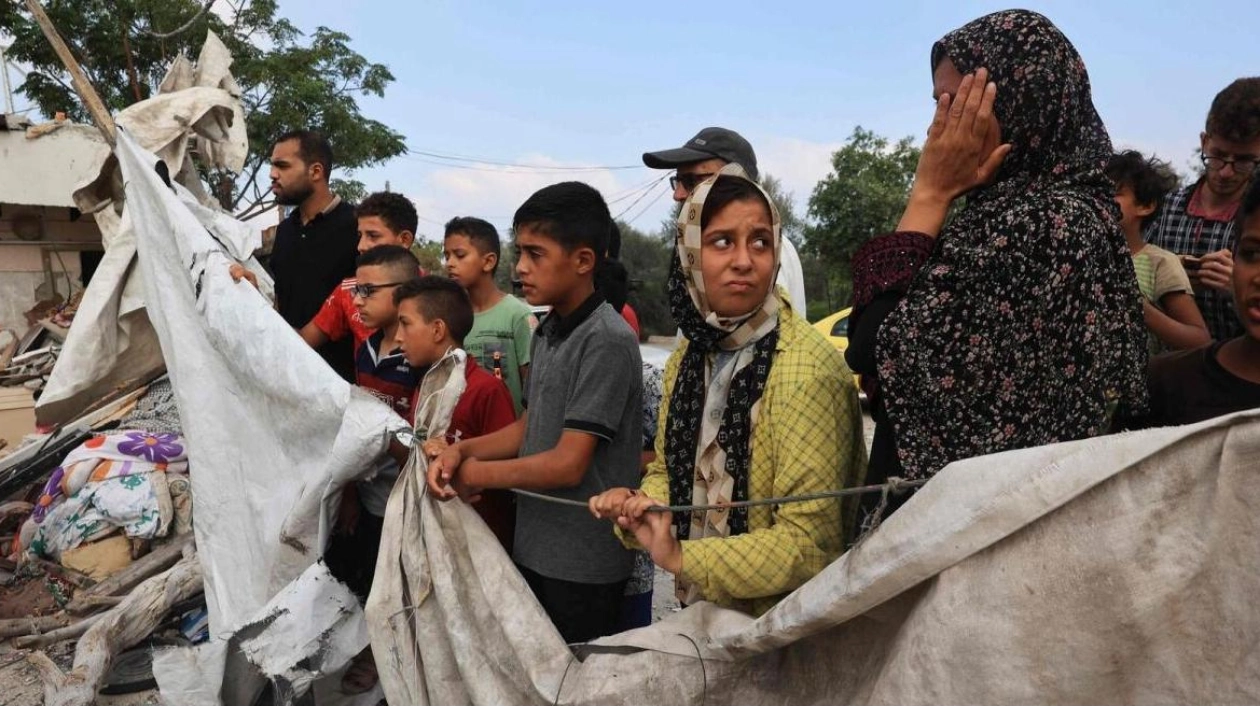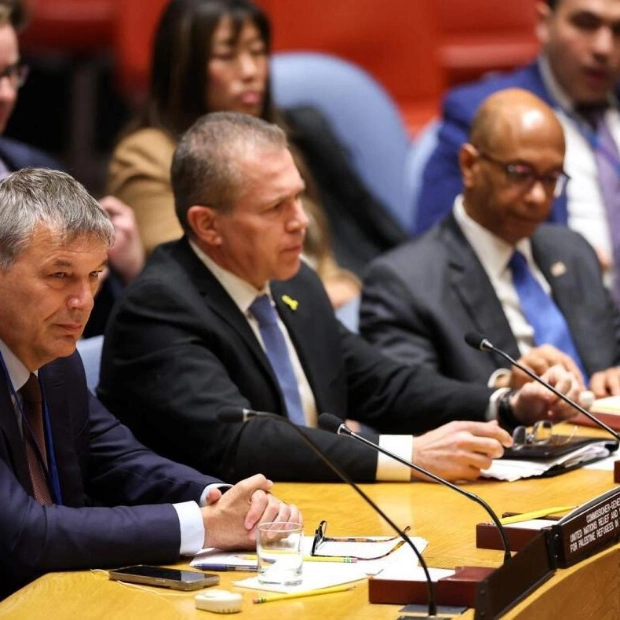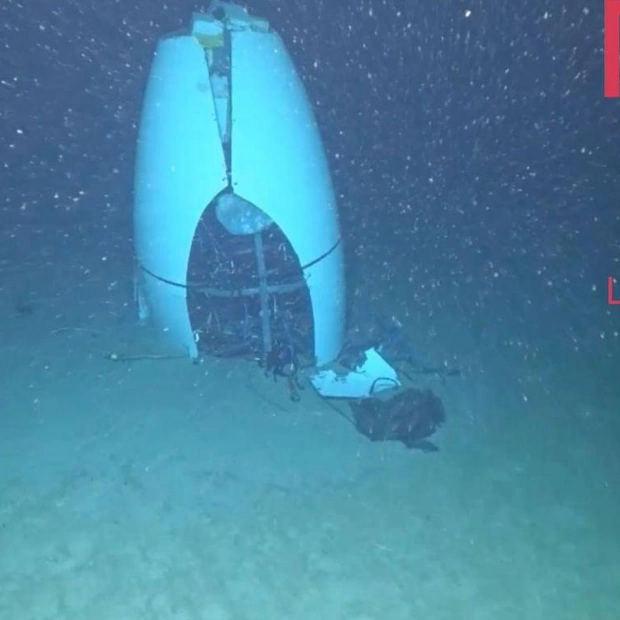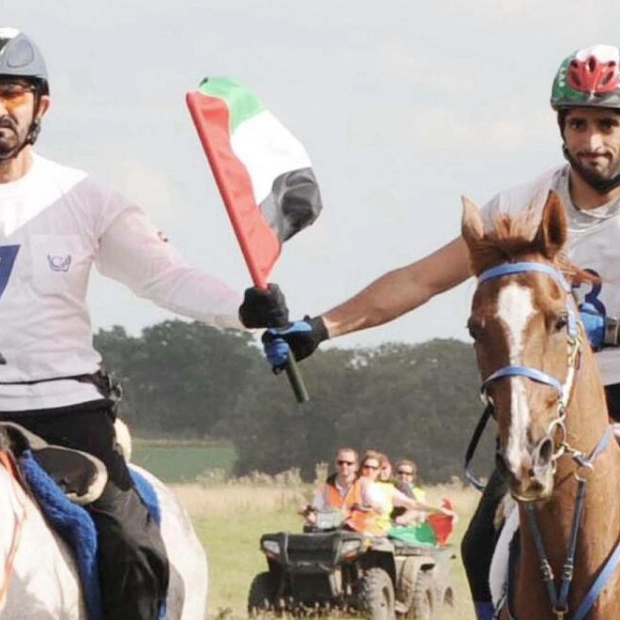Israel executed lethal air raids in the Gaza Strip on Sunday, marking the 10th month of conflict, with hostilities escalating throughout the Palestinian territory and new diplomatic initiatives being pursued to stop the bloodshed.
Lebanon's Hezbollah group launched another barrage of 20 rockets into northern Israel, resulting in one injury, as part of recent cross-border assaults in support of Gaza's Palestinian militant faction, Hamas. Efforts to secure a ceasefire are ongoing, with mediators from the US, Qatar, and Egypt aiming to end the most devastating war in Gaza's history, which has led to extensive civilian deaths and widespread destruction since Hamas's October 7 assault on Israel.
Egypt's Al-Qahera News disclosed that Cairo is "hosting Israeli and American delegations to address unresolved issues" for a ceasefire and prisoner exchange agreement, citing a high-ranking unnamed source. Mediators are in dialogue with Hamas during "intense Egyptian meetings this week with all involved parties to advance ceasefire efforts," according to a Saturday news report, though no further details or dates were provided.
Israel announced it will dispatch a delegation in the coming days to continue discussions with Qatari mediators, despite Prime Minister Benjamin Netanyahu's spokesperson stating on Friday that "gaps" still exist with Hamas. US President Joe Biden proposed a plan in late May that included an initial six-week truce and the exchange of hostages for Palestinian prisoners. Although talks have since stalled, a US official mentioned on Thursday that a new Hamas proposal "advances the process and could serve as a basis for finalizing the deal."
Senior Hamas official Osama Hamdan indicated that the group's fresh proposals have been "relayed by the mediators to the American side, which welcomed them and forwarded them to the Israeli side," noting that "the decision now rests with Israel." The relentless combat and bombardment in besieged Gaza continued on Sunday, with emergency services reporting additional fatalities from multiple strikes.
The Palestinian Red Crescent reported that the bodies of six individuals, including two children, were transported to Al-Aqsa Martyrs hospital in Deir al-Balah. Paramedics confirmed six deaths from a single strike on a house in Gaza City and three more in another area within the largest urban zone of Gaza. An AFP correspondent observed Israeli drones firing in Gaza City's Shujaiya district, which has been mostly evacuated due to two weeks of intense fighting.
The Israeli army stated that in Shujaiya, its forces "neutralized several terrorists, dismantled terror infrastructure sites, and discovered numerous weapons, including explosive devices, AK-47 rifles, machine guns, and pistols." It also reported that 30 "terrorists" were killed in southern Rafah over the past day and that Israeli forces conducted an operation in nearby Khan Yunis where Hamas had established positions in a municipal building.
On Saturday, the Gaza health ministry reported 16 deaths from a strike on a UNRWA-run school in Nuseirat, which was sheltering displaced individuals. The Israeli military claimed its aircraft targeted "terrorists" operating near the Al-Jawni school. The conflict commenced with Hamas's October 7 attack on southern Israel, which resulted in 1,195 fatalities, predominantly civilians, according to an AFP tally based on Israeli figures. The militants also captured 251 hostages, 116 of whom are still in Gaza, including 42 the military claims are deceased.
In response, Israel has conducted a military campaign that has claimed at least 38,098 lives in Gaza, mostly civilians, according to data from the Hamas-ruled territory's health ministry. The war has displaced 90% of Gaza's population, left nearly 500,000 people facing "catastrophic" hunger, and forced the closure of most hospitals, according to UN agencies.
Dr. Muhammad Salha, the acting director of Al-Awda Hospital in Jabalia, described the situation as "very difficult," noting that the hospital lacks fuel to operate and can only run its small generator for two hours daily, leading to the postponement of many scheduled operations due to fuel shortages.
During the Gaza conflict, Israel and Iran-backed Hezbollah have engaged in almost daily cross-border exchanges, with tensions escalating over the past month, raising concerns of a broader war. Although the exchanges have primarily been confined to border areas, Israel has frequently struck deep into eastern Lebanon, including a strike on Saturday that killed a Hezbollah operative.
Early on Sunday, air raid sirens sounded again across northern Israel, and the army reported that 20 rockets were fired, some of which were intercepted by air defense systems. One person was injured by shrapnel in Kfar Zeitim near Tiberias, approximately 30 km inside Israel, according to local police, who added that the individual was in stable condition. Hezbollah declared that in retaliation for the "attack and assassination carried out by the Israeli enemy," it had targeted "one of the main bases" in northern Israel, west of Tiberias, with "dozens of Katyusha rockets."






